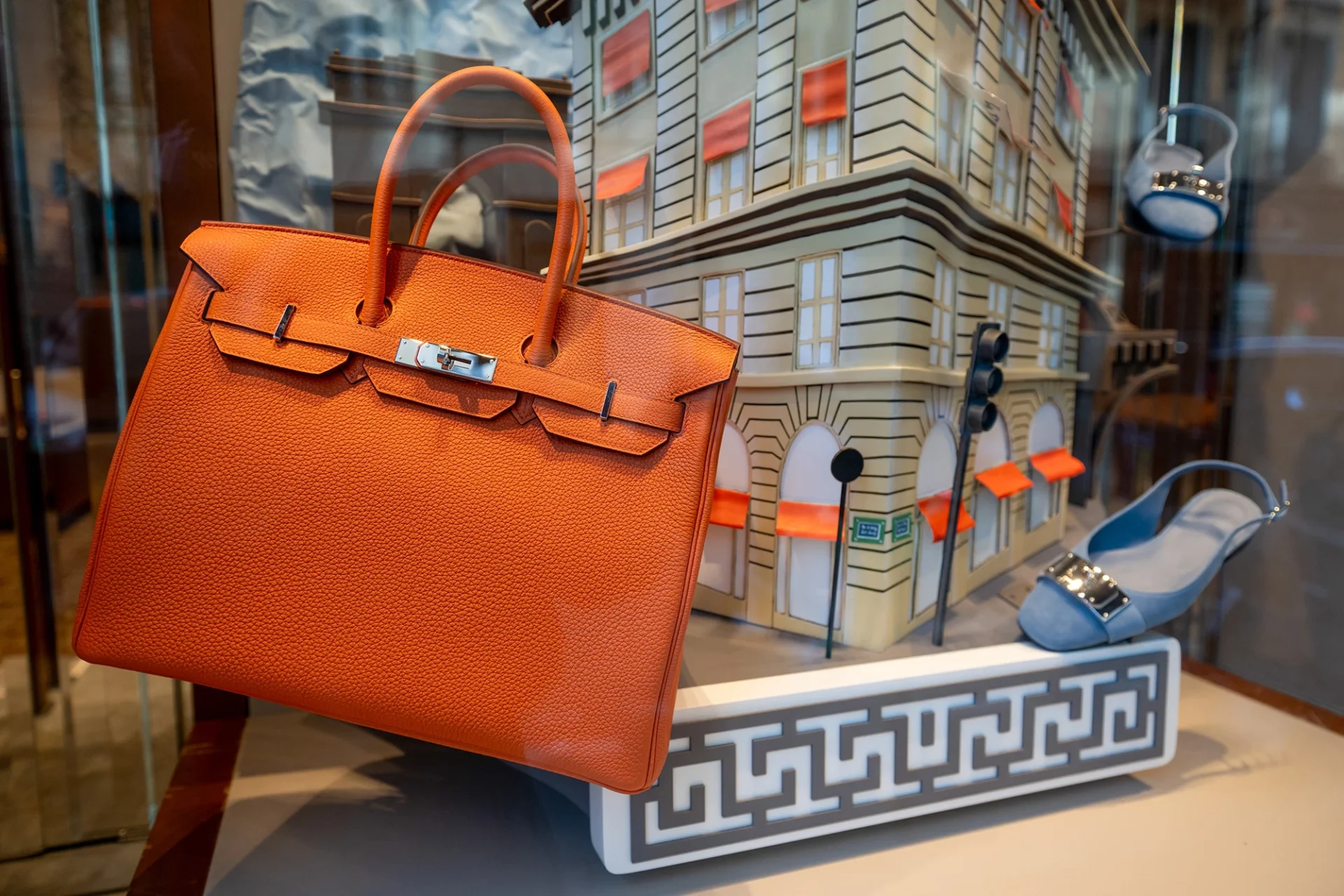LVMH lost its title as Europe’s most valuable luxury company on Tuesday, overtaken by Hermès after disappointing first-quarter revenue sparked investor concerns. Shares of LVMH, known for brands such as Louis Vuitton, Dior, Tiffany & Co., and Sephora, fell by 7%, bringing its market capitalization to €246 billion, just below Hermès at €247 billion. The drop followed weaker-than-expected quarterly sales, particularly in the U.S. where demand for beauty products and cognac declined, and with China’s performance remaining subdued.
The shift in valuation highlights diverging investor sentiment between the two rivals. Analysts note that Hermès, which serves a wealthier clientele and is famous for its exclusive $10,000 Birkin and Kelly handbags, is seen as more resilient during luxury downturns. Its cautious production strategy—limited to 6-7% annual growth—reinforces this perception of stability. In contrast, LVMH’s broader exposure to mid-range luxury consumers places it in a more vulnerable position amid current economic headwinds.
Jelena Sokolova of Morningstar emphasized how this divergence reflects broader industry dynamics. Flavio Cereda, who manages the GAM Luxury Brands investment strategy, described LVMH’s middle-market orientation as a key area of concern. The firm benefited during the post-pandemic luxury boom, gaining significant market share, but now faces short-term challenges as consumer behavior shifts.
LVMH’s 3% decline in Q1 sales—missing analyst forecasts for 2% growth—signals a more difficult year ahead for the entire luxury sector. The company’s flagship fashion and leather goods division, which includes Louis Vuitton and Dior, posted a 5% drop, raising alarm among investors.
The sector overall saw declines, with LVMH leading losses. Kering, owner of Gucci, was down 2%, Hermès fell 0.3%, Richemont, owner of Cartier, dropped 0.7%, and Prada declined 4.2%. Sales forecasts are being revised downward across the board. RBC’s Piral Dadhania now expects flat growth for LVMH this year, compared to a prior estimate of 3%.
Trade tensions, particularly new tariffs announced by former U.S. President Donald Trump, have also added to fears of a global recession, contributing to market jitters. Bernstein analysts recently revised their luxury sector forecast from 5% growth to a 2% decline for the year, a change that could signal the industry’s longest downturn in over two decades.
READ MORE:
